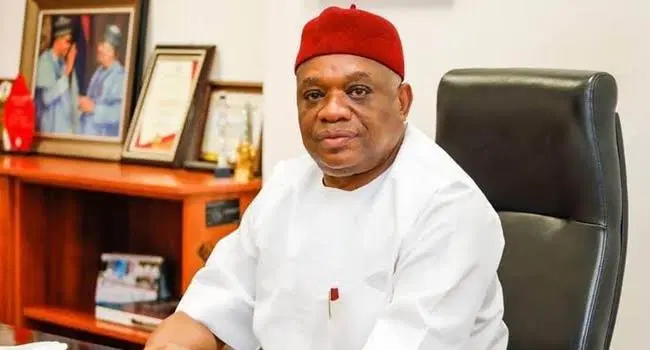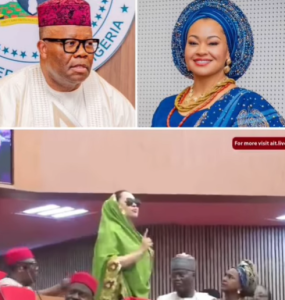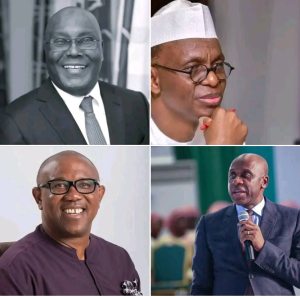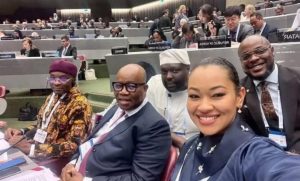I’ve Not Benefited Anything From Politics” – Orji Uzor Kalu Declares
In a stunningly candid interview aired on Channels Television on Monday, June 2, 2025, Senator Orji Uzor Kalu, former governor of Abia State and current senator representing Abia North, stated unequivocally that he has “not benefited anything from politics.” The two-term governor turned senator, and one-time presidential hopeful, painted a personal narrative of loss, sacrifice, and political marginalization.
“I spent my own money being governor like I spent my own money being a Senator,” he said. “I used to finance the state. That is the truth. I never benefitted anything being governor; rather, I lost a lot of money. The Federal Government took a lot of my businesses. For me, politics has been more dangerous than rewarding.”
This declaration—equal parts lament and legacy-building—has since ignited a storm of responses across Nigeria’s political and social spectrums. What does it mean when one of the country’s most recognizable political veterans insists he has gained nothing from a 25-year political career?
In this analysis, we explore Kalu’s journey, the plausibility of his claims, the implications for Nigerian political culture, and what it all signals for the 2027 elections and beyond.
YOU MAY READ
2027: Group drums support for Orji Uzor Kalu to retain seat in NASS
Orji Uzor Kalu is not a newcomer to Nigerian politics or business. Born in April 1960, he rose to prominence in the late 1980s and early 1990s as a businessman and quickly became a political force in the early days of Nigeria’s Fourth Republic.
He served as governor of Abia State from 1999 to 2007, representing the Peoples Democratic Party (PDP) before forming the Progressive Peoples Alliance (PPA), under which he ran for president in 2007. Later, he aligned with the All Progressives Congress (APC), riding the party’s wave to become a senator in 2019 and was reelected in 2023.
However, Kalu’s political journey has not been devoid of controversy. In 2019, he was convicted and sentenced to 12 years in prison over N7.65 billion in fraud charges, though the conviction was later quashed by the Supreme Court in 2020 due to procedural irregularities.
Throughout his career, Kalu has positioned himself as a businessman-politician hybrid. He frequently reminds the public that he made his wealth through commerce, not politics. In his latest statement, he doubled down on this identity.
The Crux of His Claims
During the Channels TV interview, Kalu emphasized several core points:
- Self-Financed Political Career:
“I used to finance the state. That is the truth. I never benefitted anything being governor.”
- Personal Financial Losses:
“The Federal Government took a lot of my businesses. For me, politics has been more dangerous to me.”
- Pioneer Fundraiser for PDP:
“I brought the money they used in forming the PDP. Ask any PDP member. I brought most of the money they used in 1998 and 1999.”
- Massive Donations to Political Figures:
“I gave President Obasanjo over $1 million to campaign. I gave the party $500 million.”
- Source of His Wealth:
“I was the biggest importer of rice, sugar, confectionaries. I was also selling petrol.”
Unsurprisingly, Kalu’s claims have sparked polarizing responses:
- Sympathetic View: Some see his remarks as a sobering reminder that not all politicians are predatory. “He gave his time and money to the people. The same system he helped build later turned against him,” says Chukwuemeka Mba, a political analyst in Umuahia.
- Critical View: Others question the logic of a man continuously contesting elections, allegedly bankrolling political campaigns with hundreds of millions of dollars, yet claiming no benefit. “That kind of statement insults the intelligence of Nigerians,” said activist Aisha Yesufu on X (formerly Twitter). “Power itself is a benefit.”
- Legal Observers: Kalu’s claims could renew interest in his business dealings and the federal government’s 2019 fraud allegations. “His declaration may be an attempt to reframe his legacy, but the facts remain tangled,” said Fola Odufisan, a constitutional lawyer.
Kalu’s statement touches on a broader Nigerian political paradox: the idea that politicians “serve at a loss” while appearing to live opulently. Let’s examine key assertions.
Orji Kalu’s financial role in the PDP’s formation has been part of political folklore for decades. In the absence of official party financial records, his statement can neither be definitively confirmed nor denied. However, party insiders and historical accounts acknowledge Kalu’s early contributions and closeness to key actors like Olusegun Obasanjo and Atiku Abubakar.
Claiming to have given $1 million to Obasanjo and $500 million to the PDP is significant—even by today’s standards. If true, this underscores both his wealth and influence. However, no formal financial disclosures corroborate these exact figures.
Kalu’s company, Slok Group, faced multiple audits and asset seizures during Obasanjo’s second term. It is also true that his relationship with the presidency deteriorated after 2003, especially following his opposition to Obasanjo’s third term agenda. Whether this constitutes “damage from politics” or fallout from political rivalry remains a matter of perspective.
Many Nigerians remain skeptical of politicians who claim financial losses in service. Kalu’s statement will likely deepen rather than heal public cynicism, especially in a season of severe economic hardship.
Only Kalu knows his true motivations. But his history suggests a seasoned operator who understands the political utility of confession, especially when it can be weaponized to gain moral high ground.
A close look at Kalu’s interviews over the years shows a trend: he frequently reminds Nigerians of his business background to separate himself from “career politicians.” This narrative helps him deflect criticism during scandals and portray himself as a reluctant power player rather than a power addict.
In that light, this latest confession may serve as a strategic prelude to either a political comeback or a graceful exit.
Orji Uzor Kalu’s claim that he has never benefited from politics may strike many as implausible. Still, it adds a new layer to the national conversation on what political service in Nigeria really entails.
As Nigeria moves toward the 2027 general elections, Kalu’s remarks will be dissected not only for their factual accuracy but also for what they reveal about the psychology of the political elite. Do some really see themselves as servants who made sacrifices? Or is this simply another episode in the long, tragicomical drama of Nigerian politics—where every villain hopes to retire as a misunderstood hero?
In the end, the jury is out—not just on Kalu, but on the political class he represents.





